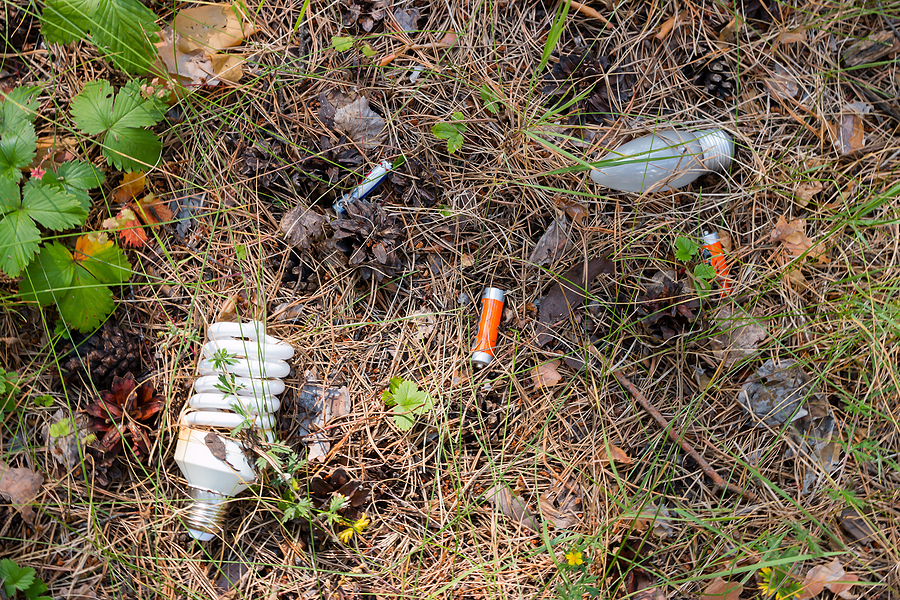4 Items Your Company Probably Doesn’t Dispose of Properly (but Should)

Even the most environmentally conscious companies today still create a lot of waste and items for disposal. Between documents, everyday trash, and large office items that are worn out, disposal systems in a company can get complicated.
It can be tempting to simply toss everything in the trash, but there are real environmental and legal risks in doing so. Here are four items your company probably doesn’t dispose of properly.
1. Old Electronics
Companies today make big investments in technology for their employees. Unfortunately, the average lifespan of electronics today isn’t very long, anywhere from 10 months to three years.
When old electronics are disposed of improperly, harmful materials can contaminate landfills and, ultimately, our soil and water. There are many harmful chemicals in most electronics, including:
- Lead
- Chromium
- Polychlorinated biphenyls (PCBs)
- Cadmium
- Mercury
In addition to the environmental risk, there is also a legal risk in some parts of the country. For example, the city of Sioux Falls passed an ordinance in 2004 that bans electronics from the local landfill.
2. Light Bulbs
Light bulbs are small and don’t usually need to be disposed of in large quantities, so most companies simply throw them in the trash. However, there is a better and safer way to dispose of light bulbs with the help of a certified recycling company.
A certified company can properly recycle your fluorescent bulbs and electrical ballasts in accordance with applicable regulations, including the Resource Conservation and Recovery Act and Universal Waste Rule.
Proper recycling of fluorescent light bulbs reduces the release of mercury into the environment and allows components such as glass and metals to be recycled.
3. Batteries
Most companies don’t realize that there is a relatively complex list of rules when it comes to disposing of batteries. For example, regular alkaline, carbon-zinc, and manganese batteries are not hazardous and can be thrown away along with ordinary trash.
On the other hand, lithium and button batteries can be recycled, but only at recycling centers that accept them. Universal waste batteries must be recycled because they contain lead and/or cadmium, which can leak and become harmful to the environment.
It can be difficult to determine which type of battery fits into which category. The best thing companies can do is to use a professional recycling company to ensure all batteries are disposed of properly.
4. Outdated Business Records
Managing business records, especially if they have piled up for years, can be a challenge. Many companies think that when records are outdated or no longer relevant, they can simply be recycled or thrown in the trash.
However, even outdated business records can contain sensitive business and personal information. Regardless of how old business records are, it is best practice to consult a shredding company to help destroy and recycle records properly.
Trust SEAM for Your Company’s Item Disposal
SEAM has years of experience helping South Dakota and North Dakota companies properly dispose of their items. From large electronics to business records in small quantities, we can meet your company’s disposal needs. Call us today to get started.
SEAM provides IT recycling and data destruction services including onsite shredding and hard drive wiping to South Dakota, North Dakota, Minnesota, Iowa, and Nebraska.
Schedule a pickup or contact us for more information.





